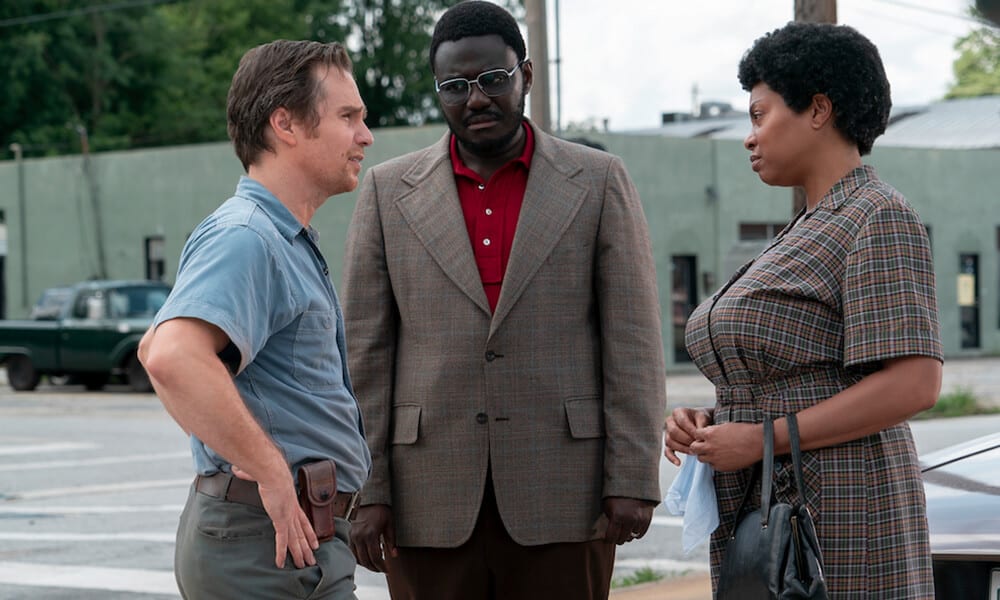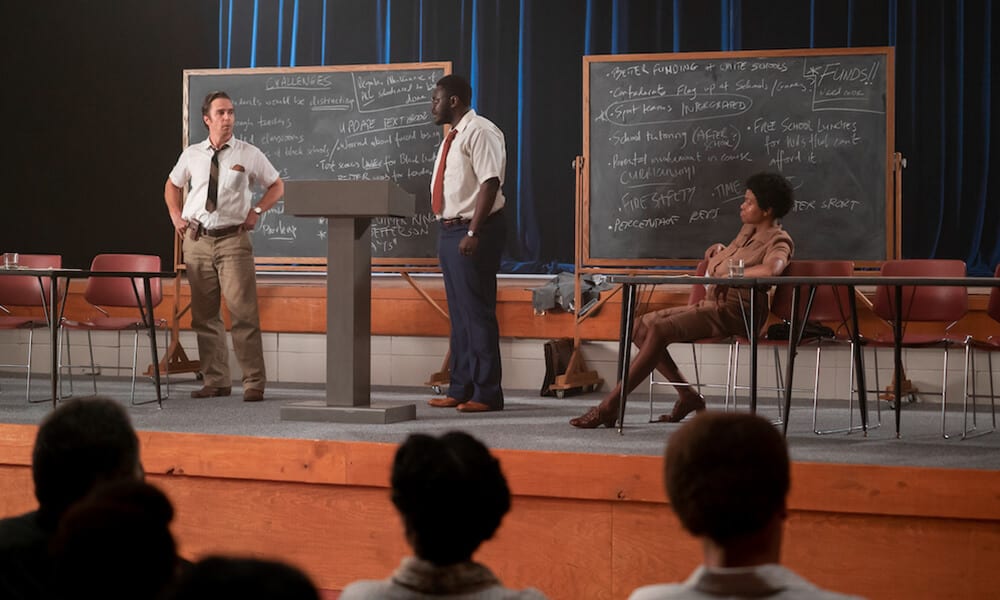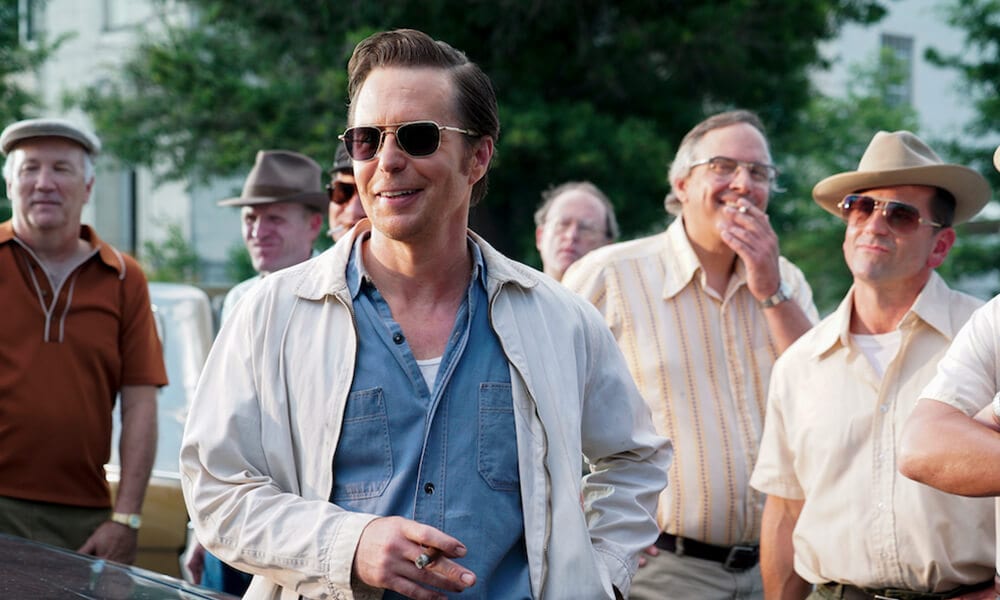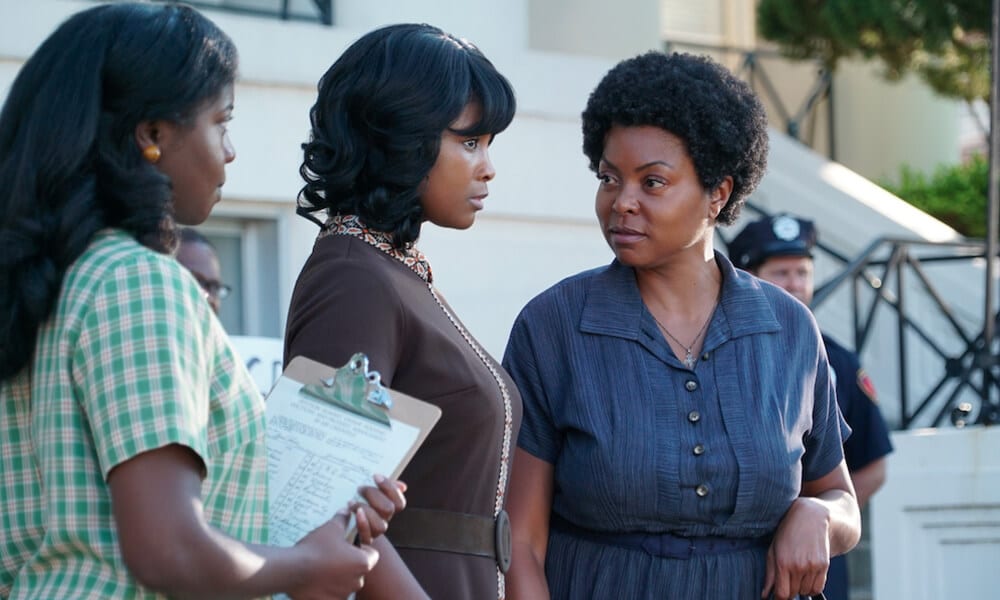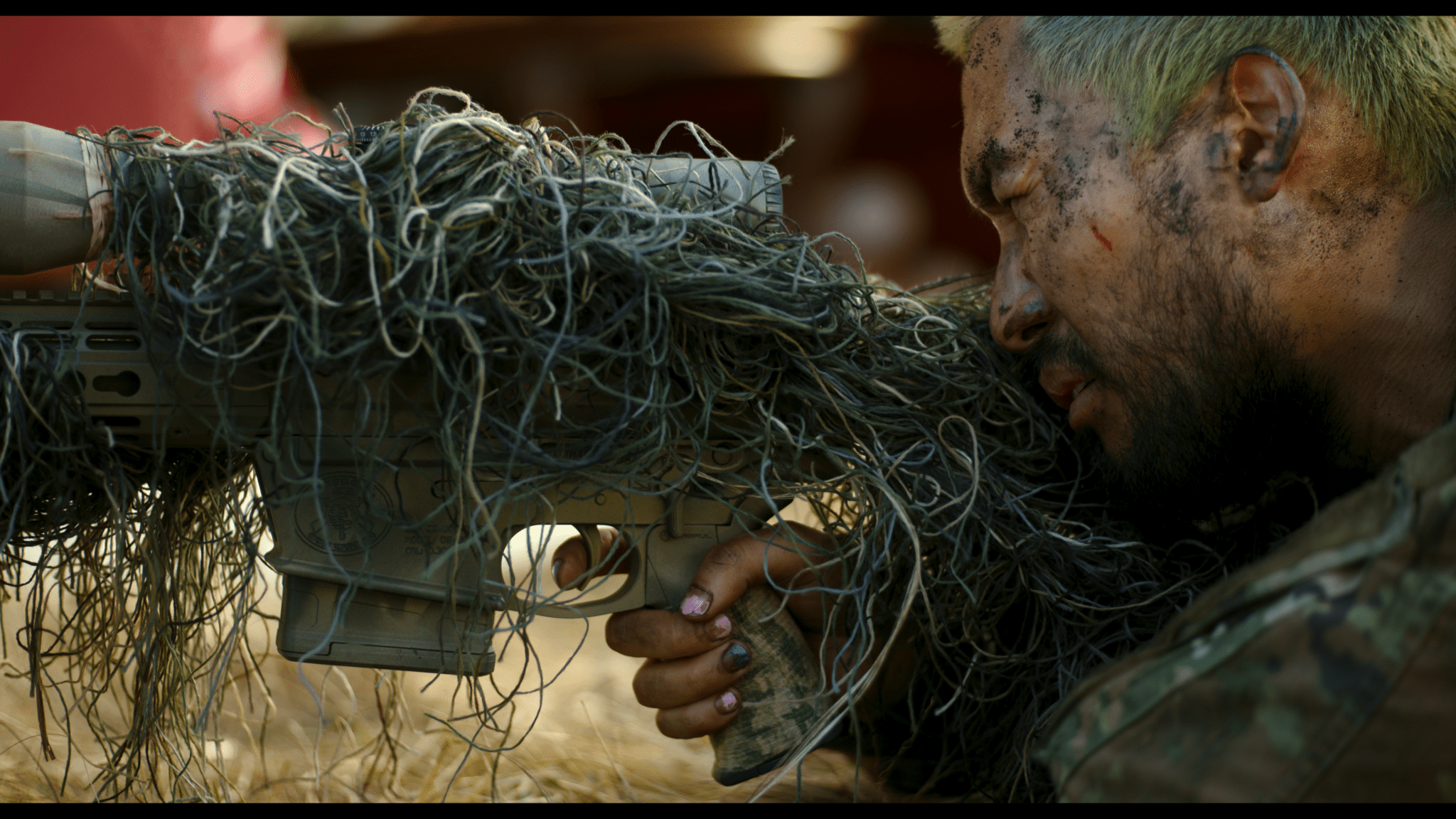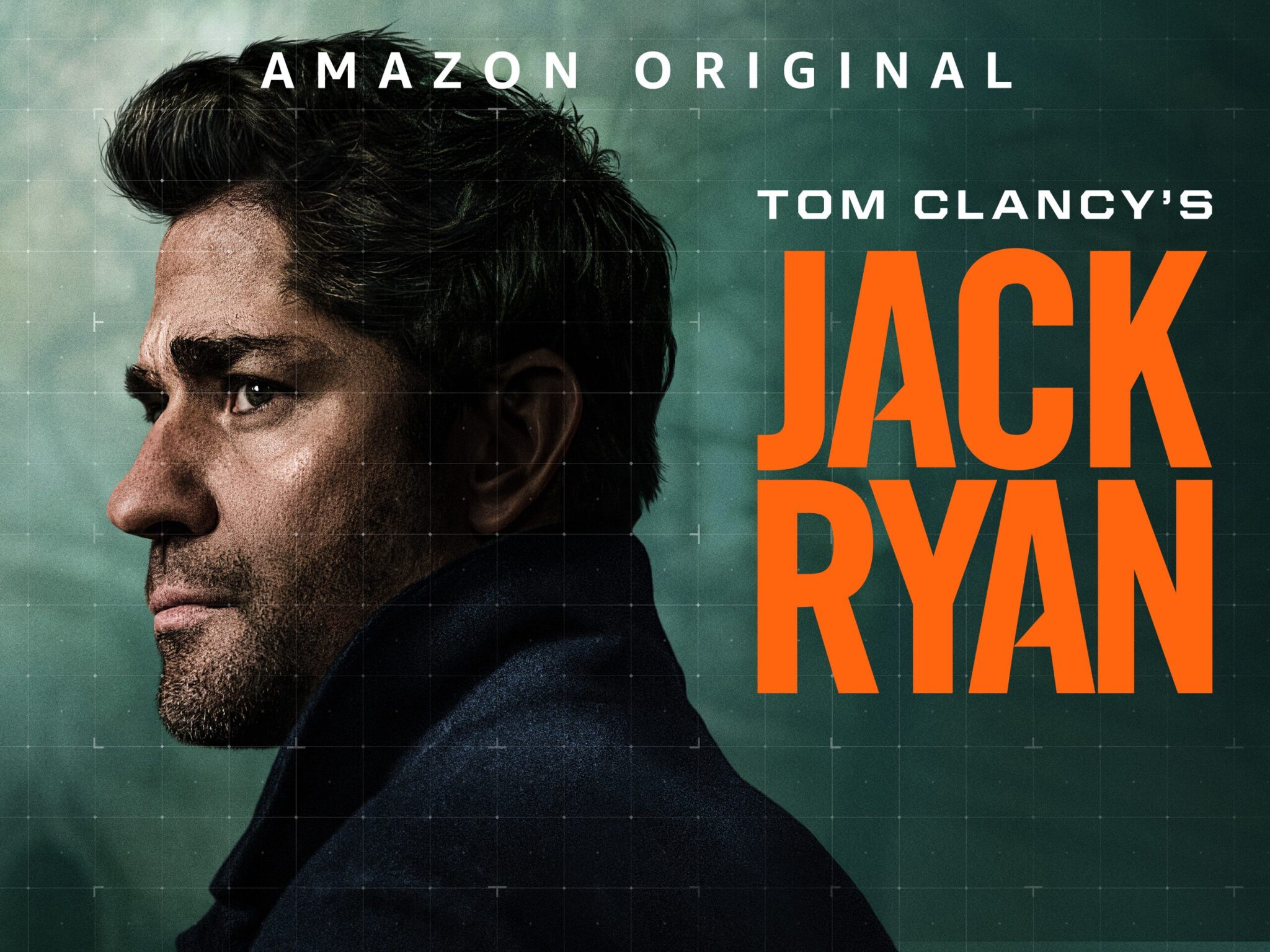?Non silba sed anthar (not for self, but for others)? [Ku Klux Klan motto]
Based on a true story, Best of Enemies tells the story of Durham, NC, in 1971. When a school for blacks has a fire, the students need to be moved. But where, to a white school? That certainly gets everyone?s attention. To stall, a judge begins a charrette process to determine the community?s desires. The man brought in to oversee the process asks black community organizer Ann Atwater (Taraji P. Henson) and C.P. Ellis (Sam Rockwell), the head of the local KKK, to serve as co-chairs of the group. The only thing they hold in common is animosity towards each other.
Civil rights and school desegregation are the backdrop for this story of a conversion experience. It is clear throughout the story (because we know the history) what the right answers will be for this civic process. And we know throughout that the only way it will turn out right is for C.P. to have a change of heart along the way. But the story is told in such a way to make that change of heart more understandable than we might think.
One aspect of the story is how the KKK is portrayed. Granted, it is made up of racists who will do whatever they can to stand in the way of equality between the races. In fact, one of the key arguments given to C.P. for accepting the co-chair position is ?He?s about to hand you the keys to school integration, and you?re going to lock the door.? And the film does acknowledge the Klan?s violence. But most of what we see of the Klan is not that far off from any other civic club. They have meetings, give awards, pray. And there is that motto: Not for self, but for others. The men of the KKK in this film believe they are acting for the good of their community. It may be that they have a severely flawed understanding of the good, but that is their motivation.
For C.P., as we hear in a voiceover as the film opens, he found his true home in the KKK. It forms his self-identity. He firmly holds that the mixing of races will only destroy society. How can such a man make the kind of shift that this plot requires? The words used often in Christian history are ?conversion? and ?repentance?. And it is C.P.?s journey on that road that makes up this story. Of course, he has help along the way. That help falls into the category of Magical Negro. And although Ann serves a bit of that role, we should really see the entire African-American community as taking on that role for this film. I should say I?m always a bit suspicious of Magical Negro films, because they have a tendency to fit people into race specific roles that do not always serve as anti-racist. This film moderates that somewhat, but not entirely.
Given the current resurgence in racism worldwide, and especially the increase in visibility of the Klan and other white supremacist groups in the U.S., This film serves as a reminder of our past racist society and allows us to reflect on just how much of that racism continues to permeate and pollute the society we could become. It could also serve, for ?those who have an ear to hear?, as a call to repentance and encouragement towards conversion and finding a new, more inclusive life and world.
Photos courtesy of STX Entertainment

